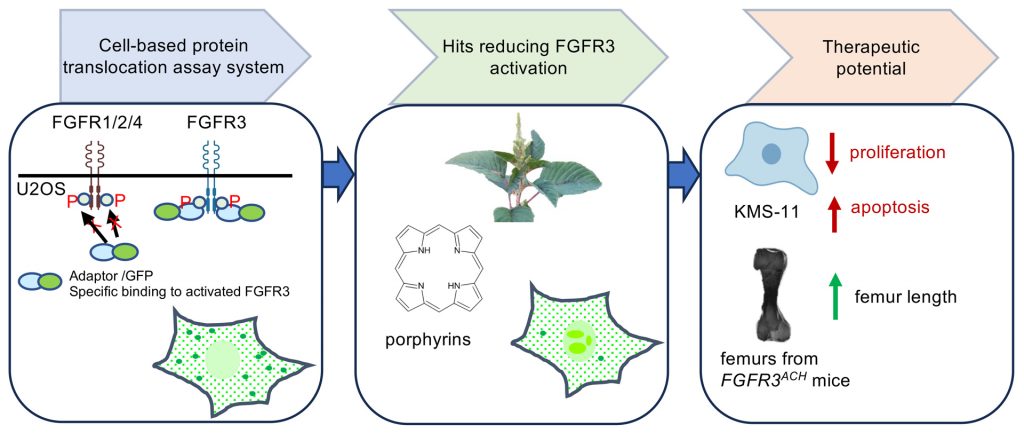Overactive FGFR3 contributes to various cancers and a range of genetic short-limbed bone disorders, including achondroplasia, the most common human dwarfism. Targeting FGFR3 activity presents a promising therapeutic approach for treating these diseases. Dr. Yi-Ching Lee and her team at the Institute of Cellular and Organismic Biology, Academia Sinica have developed a screening system to identify bioactive compounds from plant extracts. They discovered a compound accelerating FGFR3 degradation, demonstrating promising potential as a therapeutic candidate for treating FGFR3-associated cancers and bone disorders. This study was published on November 22, 2023, in JCI Insight, and is pending patent protection in several countries. The research team includes graduate student Yun-Wen Lin, research assistant Wei-Ting Chen, Dr. Cheng-Fu Kao, and Dr. Yi-Ching Lee from the Institute of Cellular and Organismic Biology, collaborating with Dr. Hsiao-Jung Kao, Dr. Jer-Yuarn Wu, and Dr. Yuan-Tsong Chen from the Institute of Biomedical Sciences, Academia Sinica.
Article link: https://insight.jci.org/articles/view/171257
Related link: https://icob.sinica.edu.tw/Eng/Information/research_more?id=9030243e31314b65949bd4b69769e77d

